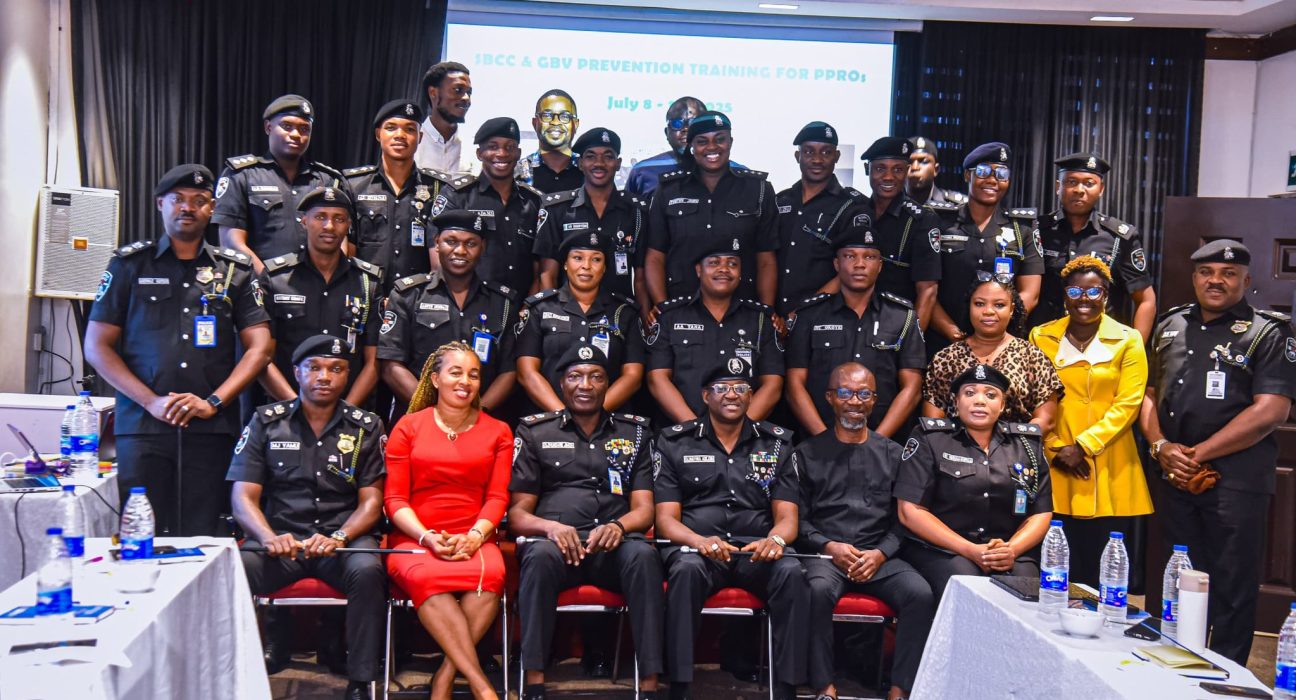In a renewed effort to enhance public engagement and strengthen internal communication frameworks, the Nigeria Police Force (NPF) has commenced the second phase of a specialised training for Police Public Relations Officers (PPROs), with a strong focus on Social and Behavioural Change Communication (SBCC) and the prevention of Gender-Based Violence (GBV). The programme, a product of strategic collaboration between the NPF and the CLEEN Foundation, kicked off on Monday, July 8, 2025, in Ikeja, Lagos State, and will run until Thursday, July 10.
The Inspector-General of Police, IGP Kayode Adeolu Egbetokun, Ph.D., NPM, who has championed several reforms aimed at repositioning the Force for better service delivery, declared the training officially open through his representative, the Commissioner of Police, Lagos State Command, CP Oluhundare Jimoh Moshood.
Addressing participants at the opening ceremony, the IGP highlighted the crucial role of communication in reshaping public perception, enhancing transparency, and promoting accountability in policing. He noted that as society evolves, it has become increasingly important for the police not only to enforce laws but also to effectively communicate policies, intentions, and actions in ways that resonate with the public.
“This training is coming at a critical time,” the IGP noted. “Our public relations officers must be adequately equipped with communication strategies that are responsive, empathetic, and rooted in behavioural insight. The goal is to build trust, combat misinformation, and encourage meaningful engagement between the Force and the communities we serve.”
The Lagos leg of the training follows the successful completion of the first phase, which was held in Kaduna State from June 24 to June 26, 2025, for officers in the northern part of the country. The second phase now brings together PPROs from various commands in the southern region for an intensive learning experience focusing on key areas such as audience analysis, behaviour change techniques, digital media utilization, strategic messaging, and grassroots-level engagement.
The partnership with CLEEN Foundation, a non-governmental organization known for its advocacy on justice sector reforms and human rights, underscores the Police Force’s openness to collaborative solutions in addressing sensitive issues like GBV and social misconduct. Facilitators at the training are expected to deliver practical modules that combine both theory and field-based case studies to enrich the participants’ understanding.
The Inspector-General reaffirmed his administration’s commitment to citizen-focused and professional policing, stressing that communication should not be seen as an afterthought but as an integral tool in conflict resolution, prevention of crime, and the promotion of police legitimacy.
As the training continues in Lagos, stakeholders across civil society and security sectors are watching closely, with optimism that the initiative will further improve the quality of police-citizen relations, reduce instances of rights abuse, and promote a policing culture anchored on empathy, effectiveness, and public confidence.
